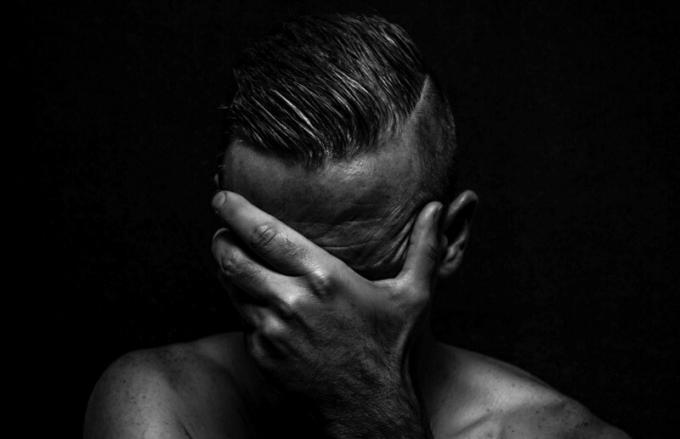Why do we feel anxiety?
Anxiety can be considered to be one of the symptoms that most affect people's emotional health today.
It is a very common pathology or "disease", typical of Western society, derived from the frenetic pace of life, self-demand, our fears and insecurities, lack of resources and coping strategies and being repeatedly exposed to stressful situations, among other aspects.
- Related article: "Types of Anxiety Disorders and their characteristics"
Why is it that we feel anxiety on a day-to-day basis?
Anxiety can be conceptualized as a feeling of anguish, stress, worry or fear among others, being a normal reaction of the body to a change or challenge.
It can be said that the anxiety response itself is adaptive and controllable, since alerts us to situations that cause us discomfort or we perceive them as dangerous, such as: exposing a new project in the company, taking a competitive examination, taking a long trip to an unknown place, diagnosing a disease, etc.
Therefore, this feeling of anxiety can give us a capacity to anticipate, respond and adapt to these unknown or "threatening" situations.
Therefore, We could say that anxiety is a defense mechanism of the body that keeps us on our toes, preparing ourselves for any unpleasant situation. Virtually most of us have suffered or will suffer from many stress responses or anxiety throughout our lives, so it must be understood as something normal within the process vital.
Some of the most common signs of stress could be:
- Difficulty calming the mind, calming down, or relaxing
- Loss of ability to concentrate
- Feeling of loss of control
- We quickly get frustrated for no apparent reason
- We don't feel nervous or overwhelmed
- Negative interpretations of the environment
The difficulty of having stress does not lie in the feeling itself or in the negative situation that can generate it, but in the symptoms underlying prolonged over time, increasingly intense, generating a feeling of anguish and constant loss of control, emotional blockages, somatizations or inability to act and think clearly, turning this adaptive response into a limiting symptom, which can damage our mental health and physics.
When these signs of stress appear repeatedly in our body, they could generate anxiety symptoms such as:
- We get upset quickly
- Ruminant negative thoughts
- Feeling agitated or tense
- Accelerated breathing (hyperventilation)
- Difficulty falling asleep normally
- Constant sense of danger
- Sweating, nausea, and shaking
- Blurred vision from dizziness
The anxiety appears with a combination of these three factors:
- Cognitive-Emotional: are the thoughts and feelings. Worries, negative perceptions about ourselves or the environment, insecurities, anticipations, etc.
- Physiological: reactions of the organism such as tremors, sweating, dizziness, pressure in the chest, stomach pain, lack of air, etc.
- Behavioral: refers to our behaviors such as overeating, biting our nails or lip, compulsive smoking, caffeine abuse, escaping from everyday situations, etc.

To do?
To prevent anxiety from causing us to produce a more pronounced pathology or disease, we could learn to recognize stress components in ourselves, such as irritability, headache, nervousness, ruminant thoughts, loss of attention and concentration, poor diet, etc.
In addition to being able to identify the external triggers that activate us (stressful situations), such as work overload, family problems, economic difficulties, negative social environment, etc. A) Yes we will be much more aware of them, making it easier to manage and control them.
To get a good management of the symptoms of stress and anxiety, we could follow the following guidelines:
- Recognize and accept that we have anxiety, without judging ourselves
- Identify why we act in a certain way, (what emotion is behind the behavior)
- Validate our emotions Why do I feel this way?
- Identify and confront our negative and wrong thoughts
- Identify the intensity of anxiety, to be able to anticipate and control it
- Learn breathing techniques or Mindfulness
- Do physical activity or exercise for the mind-body such as yoga or Pilates.
- Generate self-care behaviors: balanced diet, routines to sleep well
- Accept the things that we cannot change and do not depend on us
- Carry out activities that connect us with the feeling of well-being
- Change the order of priorities, without being overwhelmed by responsibilities
- Learn to set limits according to our needs
If after understanding these keys and putting all these techniques in place to control anxiety, we still feel that we cannot manage it ourselves, it is advisable to go to a professional psychology to help us address these difficulties in the most effective and positive way possible.
From the team of TAP Center, we have extensive experience in the management and containment of anxiety, providing the patient of an emotional, physical and social development, helping them to find a balance and well-being emotional.
Author: Marta Ballesteros Durán General Health Psychologist.
